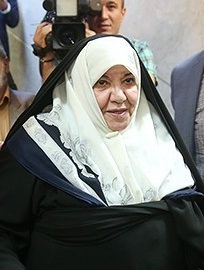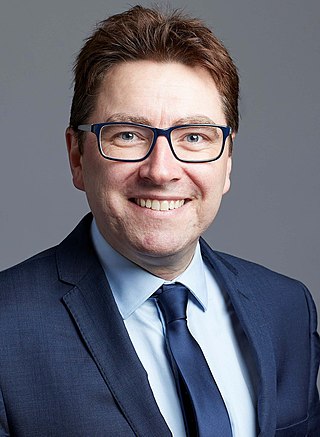
Daw Aung San Suu Kyi, sometimes abbreviated to Suu Kyi, is a Burmese politician, diplomat, author, and a 1991 Nobel Peace Prize laureate who served as State Counsellor of Myanmar and Minister of Foreign Affairs from 2016 to 2021. She has served as the general secretary of the National League for Democracy (NLD) since the party's founding in 1988 and was registered as its chairperson while it was a legal party from 2011 to 2023. She played a vital role in Myanmar's transition from military junta to partial democracy in the 2010s.

Irwin Cotler is a retired Canadian politician who was Member of Parliament for Mount Royal from 1999 to 2015. He served as the Minister of Justice and Attorney General of Canada from 2003 until the Liberal government of Paul Martin lost power following the 2006 federal election. He was first elected to the House of Commons of Canada in a by-election in November 1999, winning 92% of votes cast.

Human rights in Myanmar under its military regime have long been regarded as among the worst in the world. In 2022, Freedom House rated Myanmar’s human rights at 9 out 100.

The Rohingya people are a stateless Indo-Aryan ethnic group who predominantly follow Islam and reside in Rakhine State, Myanmar. Before the Rohingya genocide in 2017, when over 740,000 fled to Bangladesh, an estimated 1.4 million Rohingya lived in Myanmar. Described by journalists and news outlets as one of the most persecuted minorities in the world, the Rohingya are denied citizenship under the 1982 Myanmar nationality law. There are also restrictions on their freedom of movement, access to state education and civil service jobs. The legal conditions faced by the Rohingya in Myanmar have been compared to apartheid by some academics, analysts and political figures, including Nobel laureate Bishop Desmond Tutu, a South African anti-apartheid activist. The most recent mass displacement of Rohingya in 2017 led the International Criminal Court to investigate crimes against humanity, and the International Court of Justice to investigate genocide.
Maung Zarni is a Burmese educator, academic, and human rights activist. He is noted for his opposition to the violence in Rakhine State and Rohingya refugee crisis. Zarni is a co-founder of several activist platforms, including the Free Burma Coalition (1995-2004), the Free Rohingya Coalition (2018-present), and Forces of Renewal Southeast Asia (2018). He is also a Fellow at the Documentation Center - Cambodia, specializing in Genocide, and serves as an advisor to Genocide Watch (USA).

Azam Taleghani was an Iranian politician and journalist who was the head of the Society of Islamic Revolution Women of Iran, editor of Payam-e-Hajar weekly, and a member of the Iranian parliament.
There is a history of persecution of Muslims in Myanmar that continues to the present day. Myanmar is a Buddhist majority country, with significant Christian and Muslim minorities. While Muslims served in the government of Prime Minister U Nu (1948–63), the situation changed with the 1962 Burmese coup d'état. While a few continued to serve, most Christians and Muslims were excluded from positions in the government and army. In 1982, the government introduced regulations that denied citizenship to anyone who could not prove Burmese ancestry from before 1823. This disenfranchised many Muslims in Myanmar, even though they had lived in Myanmar for several generations.

Ronan Oliver Lee is an Irish Australian former politician and research fellow in the Institute for Media and Creative Industries at Loughborough University London. He was previously a visiting scholar at Queen Mary University of London's International State Crime Initiative. His research focusses on Myanmar, the Rohingya, genocide, and hate speech. He was formerly a political advisor and Labor and later Green Party member of the Queensland State Parliament. Lee represented the seat of Indooroopilly since he was first elected as a Labor Party member in 2001.

American Jewish World Service (AJWS) is a 501(c)(3) nonprofit international development and human rights organization that supports community-based organizations in 19 countries in the developing world and works to educate the American Jewish community about global justice. It is the first and only Jewish organization dedicated solely to ending poverty and promoting human rights in the developing world. Its headquarters are in New York City. AJWS has received a Four Star rating from Charity Navigator since 2002.

William Anthony Schabas, OC is a Canadian academic specialising in international criminal and human rights law. He is professor of international law at Middlesex University in the United Kingdom, professor of international human law and human rights at Leiden University in the Netherlands, and an internationally respected expert on human rights law, genocide and the death penalty.
Payam Akhavan is an Iranian-born Canadian lawyer. He is nominated as a Member of the Permanent Court of Arbitration at The Hague by Bangladesh. He is a Senior Fellow at Massey College at the University of Toronto and is a visiting adjunct at its Faculty of Law.

Iqra Khalid is a Canadian politician who was elected to represent the riding of Mississauga—Erin Mills in the House of Commons of Canada in the 2015 federal election.
The Global Justice Center (GJC) is an international human rights and humanitarian law organization aiming to advance gender equality by helping to implement and enforce human rights laws. Headquartered in New York City and led by Akila Radhakrishnan, the GJC is a member of the United Nations NGO Working Group on Women, Peace and Security. The GJC works with national and international Non-governmental organizations, the United Nations, the International Criminal Court, and others to promote the progressive, feminist interpretation and application of international law.

The Rohingya genocide is a series of ongoing persecutions and killings of the Muslim Rohingya people by the military of Myanmar. The genocide has consisted of two phases to date: the first was a military crackdown that occurred from October 2016 to January 2017, and the second has been occurring since August 2017. The crisis forced over a million Rohingya to flee to other countries. Most fled to Bangladesh, resulting in the creation of the world's largest refugee camp, while others escaped to India, Thailand, Malaysia, and other parts of South and Southeast Asia, where they continue to face persecution. Many other countries consider these events ethnic cleansing.

The Rohingya genocide is a term applied to the persecution—including mass killings, mass rapes, village-burnings, deprivations, ethnic cleansing, and internments—of the Rohingya people of western Myanmar.
Shwe Maung is a Rohingya rights activist in Myanmar and politician who served as a member of parliament in the House of Representatives for Buthidaung constituency from 2011 to 2016.

Wai Wai Nu is a Burmese activist who advocates for the rights and equality of all people in Myanmar, including the Rohingya. She was listed one of the BBC 100 Women in 2014. In 2017, she was named one of Time magazine's Next Generation Leaders.
Truth and reconciliation in Myanmar refers to the examination of human rights abuses in Myanmar, particularly involving those suffered by the Rohingya people. From a coup d’état in 1962 to a general election in 2010, Myanmar was controlled by a military regime. The junta was officially dissolved in 2011 into a civilian government, but there are lasting effects from the decades of military rule. Currently, the income gap in Myanmar is one of the largest in the world, and there are claims that many members of the previous regime continue to hold positions of power. In 2012, U.N. Special Rapporteur Tomas Ojea Quintana called on the creation of a truth commission by Myanmar to look into the human rights abuses committed by the previous government's rule. Quintana also called for an "independent and credible investigation" into the conflict between the Rakhine Buddhists and the Rohingya Muslim minority. In 2015, the Network for Human Rights Documentation Burma (ND-Burma) came out with a report that called for the acknowledgement and reparation for both crimes committed under the military junta, and the abuses currently ongoing.

General elections were held in Myanmar on 8 November 2020. Voting occurred in all constituencies, excluding seats appointed by or reserved for the military, to elect members to both the upper house — the Amyotha Hluttaw and the lower house — the Pyithu Hluttaw of the Assembly of the Union, as well as State and Regional Hluttaws (legislatures). Ethnic Affairs Ministers were also elected by their designated electorates on the same day, although only select ethnic minorities in particular states and regions were entitled to vote for them. A total of 1,171 national, state, and regional seats were contested in the election, with polling having taken place in all townships, including areas considered conflict zones and self-administered regions.












